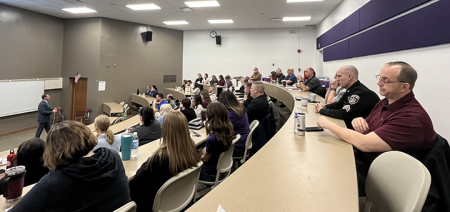How We Got Here
Published:
October 11th, 2013
By:
Steven and Cokie Roberts
This is not the most acrimonious period in American political history. In 1804, Vice President Aaron Burr killed his longtime rival, Alexander Hamilton, in a duel. Fifty-two years later, Rep. Preston Brooks of South Carolina assaulted Sen. Charles Sumner of Massachusetts with a heavy cane.
We haven't heard any threats of bodily harm. Yet. But in almost 50 years of covering the capital, we've never seen a political landscape so incendiary and intractable. Usually, at this stage of a legislative standoff, pragmatists in both parties are reaching for an accord. Feelers are going out. Good sense is taking hold.
Not this time. As Speaker John Boehner said on ABC: "There may be a back room somewhere, but there's nobody in it."
Democrats are not blameless -- their Senate leader Harry Reid has been particularly pugnacious -- but House Republicans clearly bear more responsibility for shuttering the government and endangering the country's credit rating. They picked this fight. They sought this showdown. And the public has reacted very negatively. In the latest Washington Post/ABC poll, 70 percent view the GOP's role unfavorably while only 24 percent are positive.
So why did they take this course? And why do they persist? One answer is that powerful, long-term trends are pushing those Republicans toward a confrontation that was entirely predictable. As Dan Balz put it in The Washington Post, "The government shutdown did not happen by accident."
After last year's election, Nate Silver analyzed the results in The New York Times and tried to explain why compromise is "so hard in the House." The answer was not "the irrationality of Republican members" but exactly the opposite.
"Individual members of Congress are responding fairly rationally to their incentives," Silver wrote. "Most members of the House now come from hyper-partisan districts where they face essentially no threat of losing their seat to the other party. Instead, primary challenges, especially for Republicans, may be the more serious risk."
The most obvious reason for these "hyper-partisan districts" is the process by which district lines are drawn. "Gerrymandering" is as old as the country, since the term was coined by the Boston Gazette in 1812. But partisan mapmakers, armed with high-speed computers, have raised that ancient art to a whole new level.
Silver estimates that in 1992, 103 House members represented "swing" districts that could legitimately be won by either party. That number has now shrunk to 35, less than 10 percent of the entire chamber. Using a different metric, David Wasserman of the Cook Political Report estimates the number of swing districts has dropped from 164 in 1998 to just 90 today.
The essence of democracy is being perverted. Most lawmakers are insulated from any accountability. Yes, they run every two years, but those elections are a sham in many cases. They have virtually no fear of defeat -- except from a primary challenger who pushes them to embrace partisan posturing over pragmatic dealmaking.
Redistricting is only part of the problem, however. Within each district, lines are hardening. Red areas are getting redder and blue areas bluer. People are voting with their feet, "self-sorting" themselves by choosing neighborhoods they find more socially and politically compatible.
Liberals tend to move to cities, conservatives to the fringes of suburbia and beyond. And once they get there, their voting behavior becomes more rigid. As a result, says Silver, there has been a "sharp decrease in ticket-splitting."
During the last government shutdown in the mid-'90s, reports Wasserman, 79 House Republicans represented districts won by Bill Clinton. Today just 17 -- fewer than 10 percent -- are in districts won by Obama, a huge change. Political scientist Gary Jacobson tells the Washington Post that 30 years ago, about one-quarter of American voters split their tickets; last year that number dropped to 11 percent.
According to the latest CBS/New York Times poll, 72 percent of Americans oppose the government shutdown and only 25 percent support it. But those are national figures. Here in the capital, the Tea Party types might look like "wacko birds," in John McCain's famous phrase. Back home they're heroes.
So yes, Speaker Boehner has a very tough job. But listening to the base of his party is not his only obligation. That base represents a small minority in the country, and great leaders should not become prisoners of their loudest, shrillest supporters. The national interest is at stake here. The speaker should put that goal first and stand up to the hardliners, even if they're heroes back home.
Steve and Cokie Roberts can be contacted by email at stevecokie@gmail.com.
Comments




